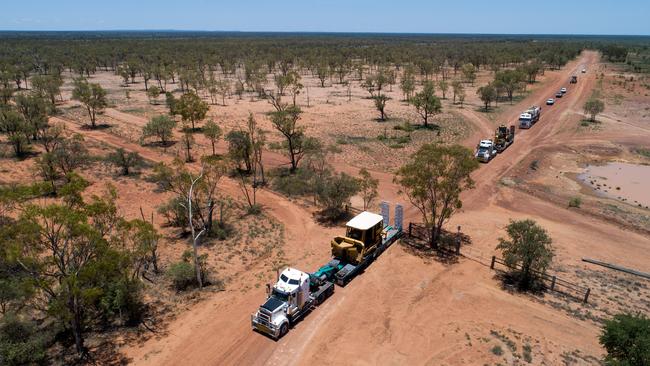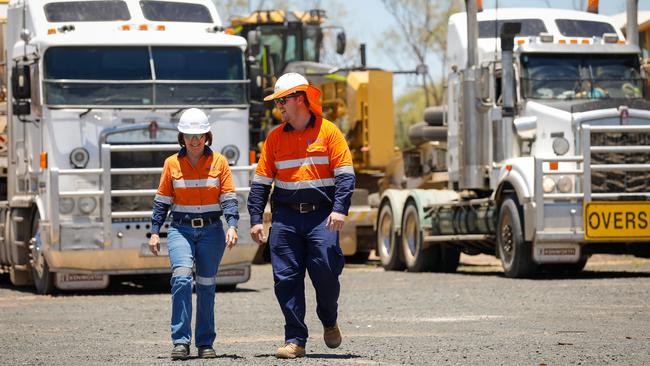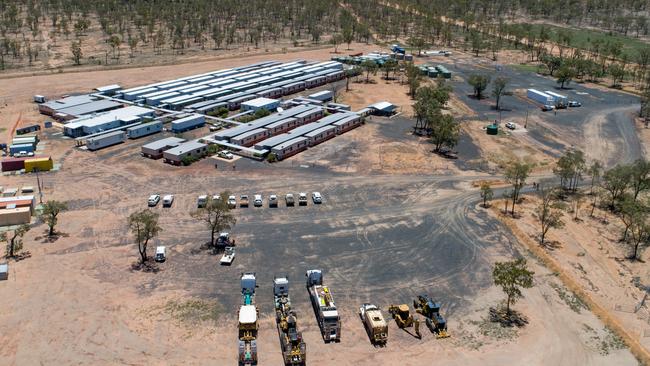Adani tries to get things moving at Carmichael coalmine
Heavy earth-breaking machinery has finally arrived at the site of the nation’s most hotly contested open-cut coalmine.

After eight years of politically charged protest that dominated Australia’s environmental debate, heavy earth-breaking machinery has finally arrived at the site of the nation’s most hotly contested open-cut coalmine.
The bulldozers, graders and service vehicles were sent yesterday to the site of Adani’s Carmichael mine in Queensland’s Galilee Basin — a massive, untapped coal province geologists say could yield more than 27 billion tonnes and potentially employing 15,000 coalminers across six projects.
The Indian conglomerate expects to deliver up to 27.5 million tonnes from Carmichael to port each year via a purpose-built rail link that while less ambitious than first planned, needs no taxpayer subsidies or external finance.

However, Adani chief executive Lucas Dow said yesterday the mine was being frustrated by the state government, which has delayed crucial paperwork approving plans to protect groundwater and the endangered black-throated finch.
“It feels very much like now, at the 11th hour, the goalposts have been shifted,” he told The Australian. “We have jumped through every environmental condition and hurdle that’s been stipulated and effectively only unwarranted or misplaced government intervention will stop us. The reality is right now the state government is standing in the way of jobs for regional Queensland and in particular people in Rockhampton and Townsville.”
State Environment Minister Leeanne Enoch, who met Adani representatives yesterday, said her department was assessing Adani’s plans “on the best available science”.
“These decisions are made free of political interference — that’s how we protect the integrity of our environmental laws,” she said.

The Environment Department said there was “no statutory timeframe” within which it had to approve management plans. It said the finch plan was being examined by an independent scientific panel, while Adani’s groundwater plan still needed to “identify the source aquifer of the Doongmabulla Springs complex and mitigation measures to protect the springs”.
The department was also awaiting independent scientific advice commissioned by the federal government from CSIRO and Geoscience Australia before approving the groundwater plan.
Adani’s groundwater plan needs only state government approval in the short term. The finch plan has already been approved by the federal government.
Until management plans are approved, Mr Dow said Adani would begin work on its railway, which could be used by other miners including Gina Rinehart’s GVK Hancock, Clive Palmer’s Waratah Coal and Chinese firm Macmines.
Anti-coal activists have ramped up their campaign against Adani since the company announced last month it would self-fund the railway. This has included disrupting public appearances by Bill Shorten and federal Resources Minister Matt Canavan, and pressuring insurance companies to refuse to deal with the company.

